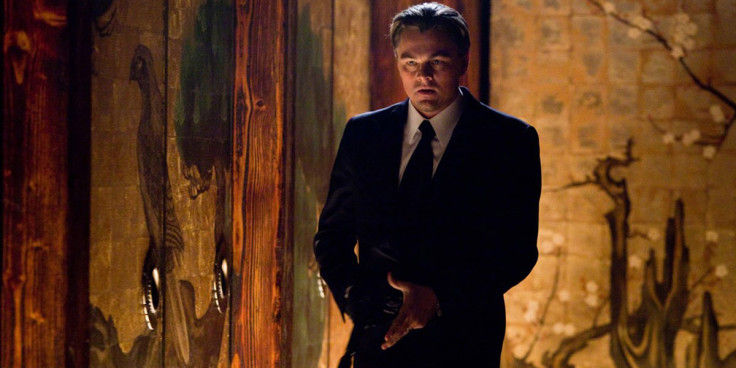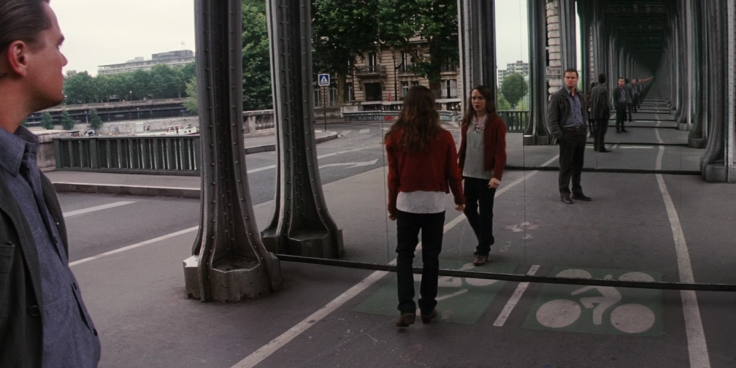Inception: The Films of Christopher Nolan – Part 1

In our continuing series, IBTimes UK takes a look at the work of British director Christopher Nolan in the lead up to the November release of his ninth film, Interstellar. This week we look at Inception, his most cunning masterwork.
Granted the kind of freedom few directors ever get to enjoy following the enormous success of The Dark Knight, Christopher Nolan chose to turn a script he had been working on for nearly a decade into reality.
It was a passion project in the purest sense, an original work that had occupied Nolan's mind since before he became one of Hollywood's biggest names. He first pitched the idea in 2001, many years before production began.
That time spent mulling over the story, tinkering with themes and plot lines, helped Nolan refine a story so ingrained in the abstract that making it coherent on the page, let alone the screen, would have been achievement enough.
Inception is a story about a thief, Dom Cobb (Leonardo DiCaprio), who breaks into the dreams of powerful targets to steal their secrets. Rather than being a career criminal however, Cobb was forced into a life of crime after being falsely accused of killing his wife Mal (Marion Cotillard), whose suicide haunts him.

Cobb is granted the opportunity to return home to his children and have the charges against him dropped by Saito (Ken Watanabe), a powerful energy magnate who wants a rival set to inherit his dying father's company to break it apart and end a monopoly.
They do this through inception, the planting of an idea in someone else's mind. Is it possible? Cobb knows it is, but it's rarely been achieved.
The act of inception takes the form of a heist, which takes place inside the dreaming mind of their target Fischer (Cillian Murphy), and so Cobb needs a team to carry out the crime.
His team is deliberately based on that of filmmaking. Cobb is the director, Arthur (Joseph Gordon-Levitt) the producer, Eames (Tom Hardy) the actor, Ariadne (Ellen Page) the set designer or special effects supervisor and Saito the studio executive.
So it's easy to interpret that the film is about creativity, reality, escapism and the nature of telling stories, on top of Nolan's more common theme of men with fractured psyches dealing with personal trauma.
The dreams they inhabit and draw their targets into through a mysterious device are created by architects like Ariadne. Cobb also regularly dreams of lost happy memories with his family, an act of telling himself comforting tales to ease his guilt. The target Fischer, with a little help from the team, also creates a story about his father which brings about the idea being incepted.

In the case of films like this, or books or games, the stories told are clearly separate from reality, but in dreams and the mastery of them, people can get lost in disillusionment over what is real and what is not. The need to keep track results in the film's totems – small items known to the holder that they use to determine when they're in reality - the most notable being Cobb's iconic spinning top.
Throughout the film Cobb is plagued with guilt over his wife's death, which manifests physically within the dreams as her and other apparitions. Share a dream with someone and their subconscious will follow, and so Cobb's guilt becomes a problem for his whole team.
Inception is a masterful juggling act of themes and plot strands. Cobb's practical journey of planting a thought in a target's mind – and his emotional one of dealing with his wife's death and returning home to his two children – are beautifully intertwined by the nature of shared dreaming and subconscious thought.
In juggling the film's plot strands, Inception also proves to be one of the best-edited films ever, which by its very nature it really had to be if it hoped to make sense.

Cobb's team burrows three layers deep into Fischer's subconscious to plant their idea – a dream within a dream within a dream – and the film's entire climax plays out across these three layers (and later a fourth in the form of limbo, or "unconstructed dream space") in tandem, with Nolan cutting between each rapidly without ever losing his audience.
The best editing occurs in the film's concluding half, so by comparison the first is quite simple, but it still presented challenges. The first hour of Inception is almost entirely comprised of expository dialogue, which represents a problem for most blockbusters but which weeks flawlessly here.
Rather than down to the quality of writing, which is as perfectly good as ever but hardly mind-blowing either, the reason these big doses of exposition are so easy to swallow is simple: what the film talks about is incredibly interesting.
The notion of it, the way this world of dream-sharing and dream-invading works, the rules: it's confusing at first yes, and for a very small few this represents an impenetrable wall, but it works and makes its audience want to understand because unlike most blockbusters this is a film that treats its audience as intelligent human beings capable of understanding grand concepts.
In part two we'll take a look at Inception's iconic ending...
© Copyright IBTimes 2025. All rights reserved.






















